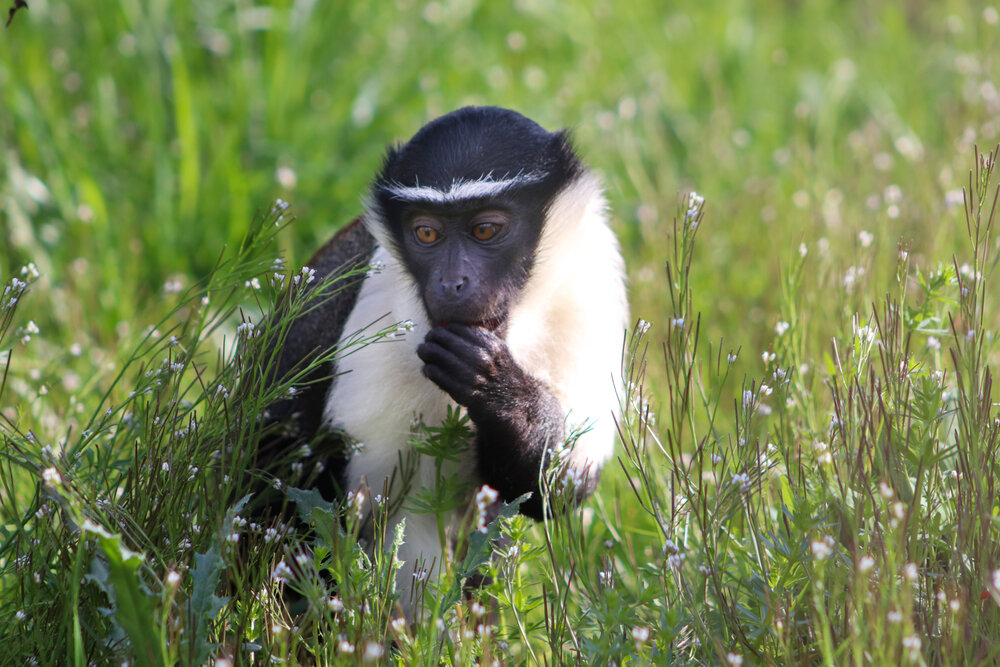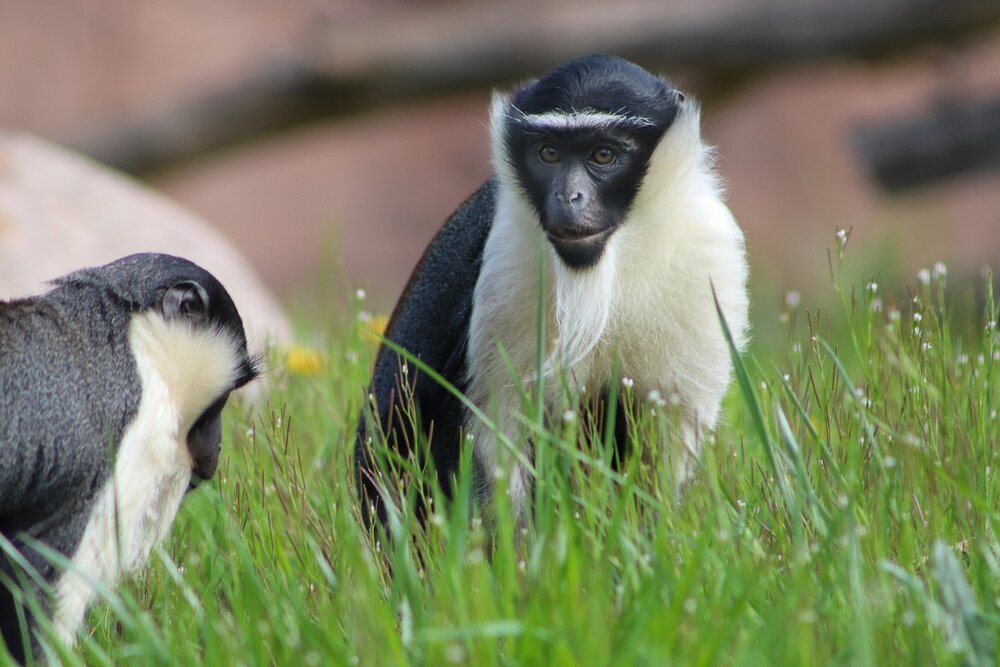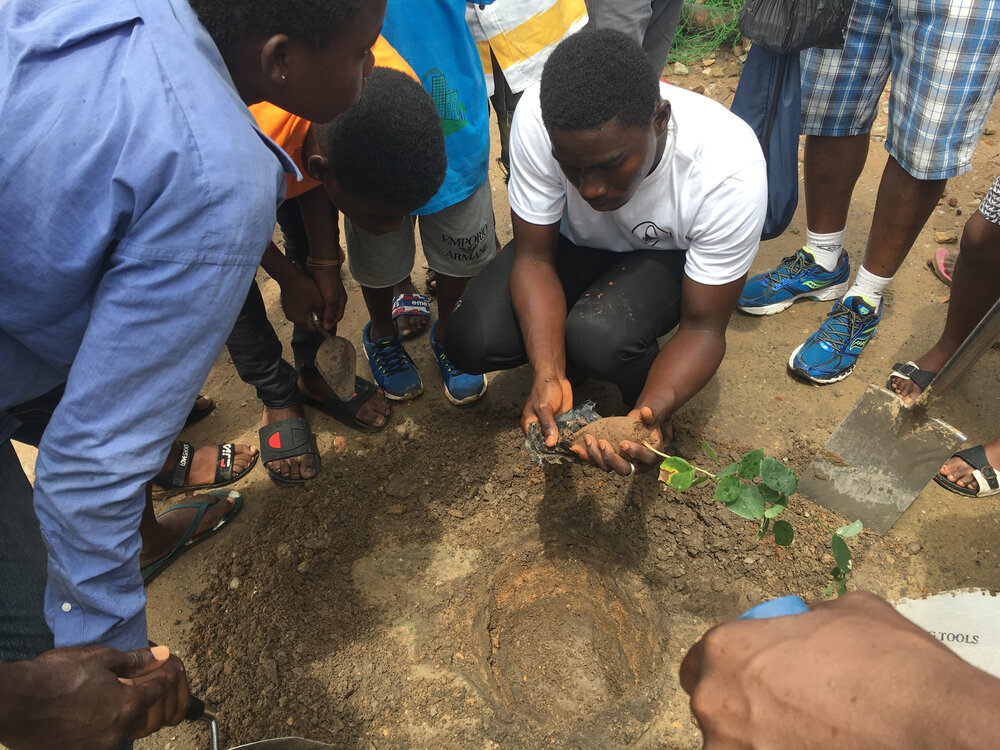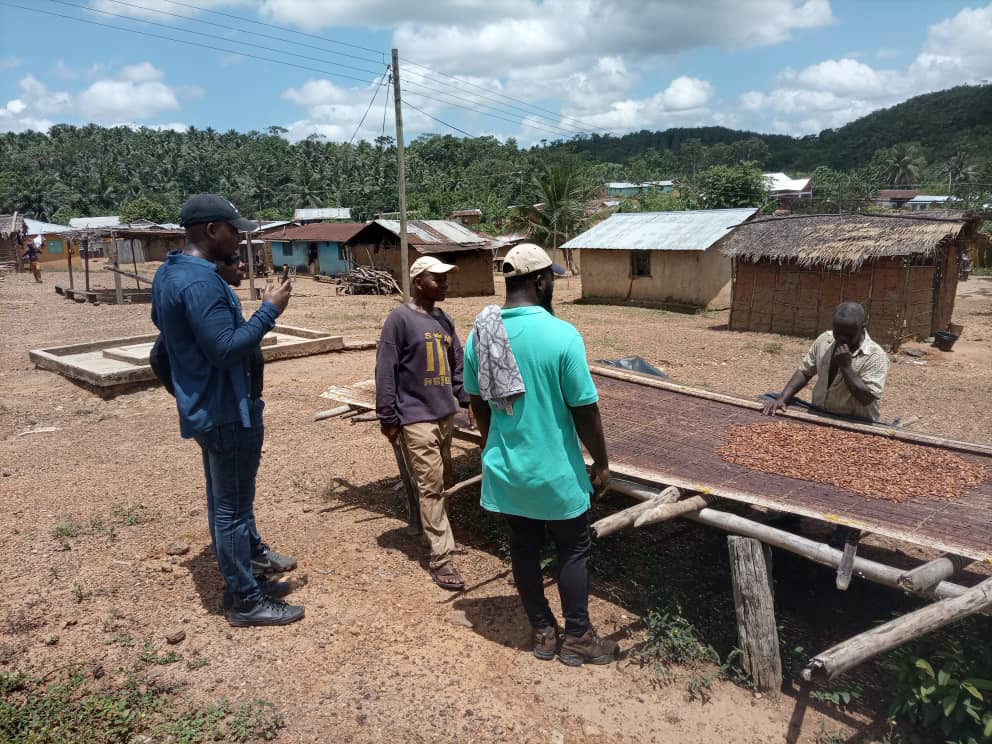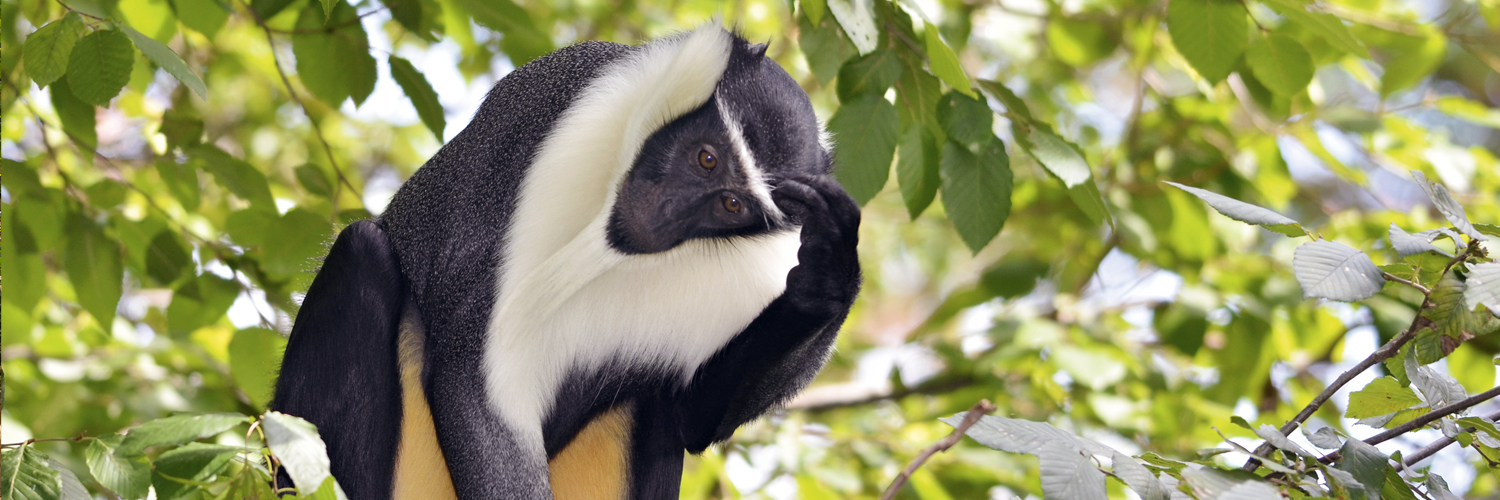
Roloway monkey
Zoo and Tierpark Berlin are committed to the protection of Roloway monkeys in West Africa.
Project facts
- Project partners
West African Primate Conservation Action (WAPCA)
- Species
Roloway monkey (Cercopithecus roloway)
- IUCN threatened status
Critically endangered (CR)
- Project location
Ghana and Ivory Coast, Africa
- Greatest threat
Habitat loss and poaching
- Response
Protecting natural habitat, educating local people
Threat Categories of IUCN

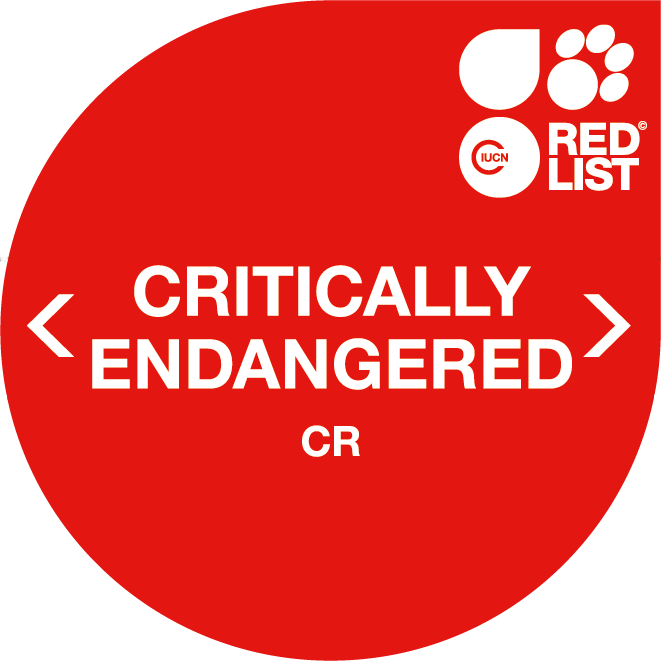
Dapper climbers
Roloway monkeys first came to Zoo Berlin in 1976. Since summer 2021, 45 years later, visitors to Tierpark Berlin have been able to watch a lively Roloway couple climbing, playing and exploring their habitat. With their long tails and impressive agility, they are able to move speedily from branch to branch, rarely losing their balance. These distinctive monkeys are easily recognisable thanks to their characteristic, and rather elegant, bushy white beards and brow markings. In their natural habitat, Roloways seek shelter in the dense canopy of tall trees, where they spend most of their day looking for fruit and basically monkeying around. When darkness falls, they make themselves comfortable on forked branches and sleep in the safety of their group.
At home in a hotspot
The only natural habitat of Roloway monkeys is the Upper Guinean rainforests – a 350 km wide strip of evergreen West African coastal rainforest that stretches from Sierra Leone to the Ghana-Togo border. This habitat is a designated Key Biodiversity Area. KBAs make up only 1.4 percent of the planet’s surface, but are inhabited by more than 60 percent of the animal and plant species found on Earth. That makes the home of the Roloway monkeys an important biodiversity hotspot.
Almost gone
The Roloway monkey is one of the 25 most endangered primate species in the world. The International Union for Conservation of Nature (IUCN) estimates that only around 300 of these monkeys are still living in their original range. Experts believe that numbers in Ghana in particular have fallen by at least 90 percent in recent years. Deforestation, human encroachment and uncontrolled hunting for bushmeat are driving Roloway monkeys to the brink of extinction. Hunting these striking monkeys is a lucrative business due to the high market value of their meat.
Protecting the monkeys’ forest home
West African Primate Conservation Action combines nature conservation with development assistance for local human populations. The team’s goal is to help communities living next to this important habitat to establish a sustainable livelihood and independently manage and protect the natural resources of the forest. For example, local rangers carry out biodiversity monitoring, reforest the land, and report illegal activities to the relevant authorities.
Photos on site: © WAPCA
